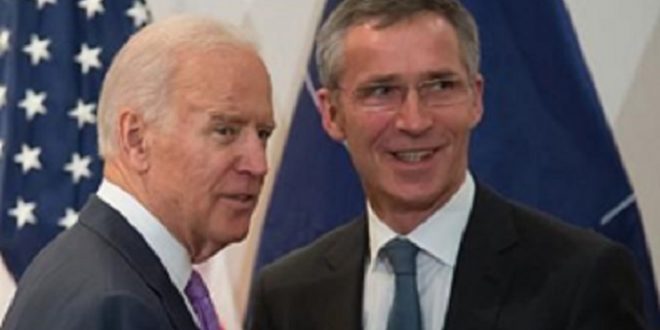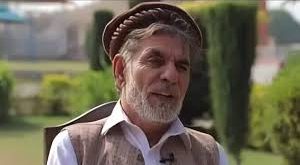AT Monitoring Desk
KABUL: US President Joe Biden administration officials will meet with allies this week on teetering plans to end the war in Afghanistan, turning to another top foreign policy challenge after a week that saw confrontations with Washington’s chief geopolitical rivals.
Secretary of State Antony Blinken will travel this week to Brussels for meetings with allies from North Atlantic Treaty Organization countries who have backed the U.S. in the 20-year war. The trip follows an unannounced visit to Afghanistan on Sunday by Defense Secretary Lloyd Austin.
U.S. officials haven’t said whether they would meet a May 1 deadline for U.S. troops to depart Afghanistan, set under the Trump administration as part of talks with leaders of the insurgent Taliban movement. Biden administration officials have indicated repeatedly that removing troops by then will be difficult, given continued high levels of violence.
There are at least 2,500 U.S. troops in Afghanistan and 6,500 NATO troops, and allies have said they would depend on U.S. logistical support to withdraw troops.
“We went in together. We will adjust together as we have over the years. And when the time is right, we will leave together,” Philip Reeker, acting assistant secretary of state for European and Eurasian affairs, told reporters last week in a preview of Mr. Blinken’s trip to Brussels.
The talks about the long-running Afghanistan war will mark the Biden administration’s latest foreign policy test. Mr. Blinken and White House national security adviser Jake Sullivan clashed with Chinese counterparts over a range of issues during meetings last week in Alaska.
Mr. Austin on Sunday met with Afghan President Ashraf Ghani and U.S. military and diplomatic leaders in the country, in the first visit by a top Biden administration official and amid the latest efforts by the U.S. and international powers to end the two-decade war.
The U.S. is part of a multi-prong international effort seeking to prevent Afghanistan from becoming a haven for extremist groups, drug smuggling or other forms of instability to the region.
During a previously scheduled Afghan peace conference hosted by Moscow last week, four nations—including the United States, China, Russia and Pakistan—called on the Taliban to reduce violence and begin talks for a power-sharing deal with the U.S.-backed Afghan government, led by Mr. Ghani.
In addition, the Ghani government has agreed to attend a U.S.-proposed international peace conference in Istanbul next month that will include Taliban representatives. Those talks are aimed at carving out a power-sharing government between the Taliban and Kabul.
“There’s always going to be concerns about things one way or the other, but I think there is a lot of energy focused on doing what is necessary to bring about a responsible end and a negotiated settlement to the war,” Mr. Austin told reporters traveling with him before arriving Sunday in Kabul.
The Trump administration last year agreed to draw down the remaining American troops in Afghanistan by May 1 as part of a deal with the Taliban. But amid fears that the withdrawal could lead to rising violence and the restoration of an Islamic emirate under the Taliban, the Biden administration has said it has not made any final decision on withdrawing troops.
In an interview last week with ABC News, Mr. Biden hinted that the U.S. and allied troops could stay. Asked whether the withdrawal would take place, Mr. Biden said, “It could happen, but it is tough.” He added that if the withdrawal deadline is extended, it won’t be by “a lot longer.”
The unannounced stop in Afghanistan marked the end of Mr. Austin’s first international trip as defense chief, which included stops in Japan, South Korea and India.
 Afghanistan Times
Afghanistan Times




